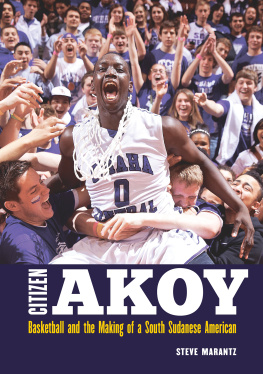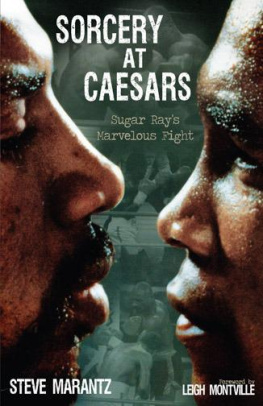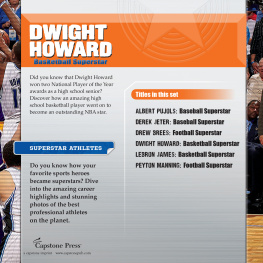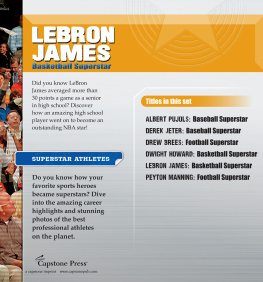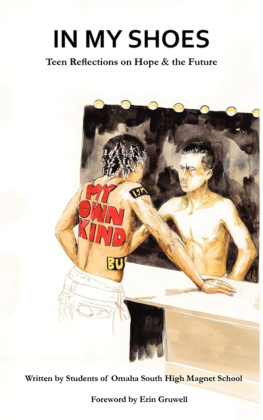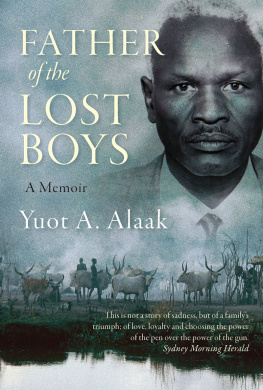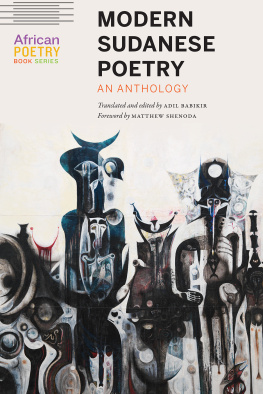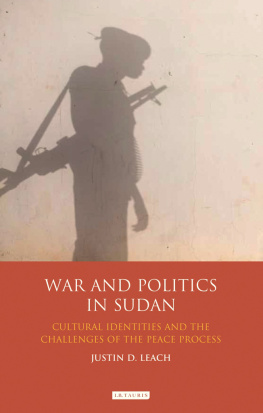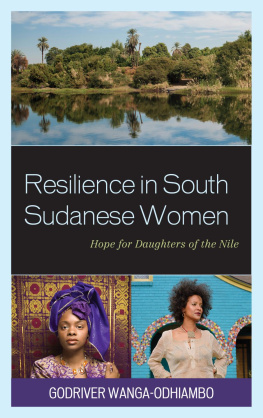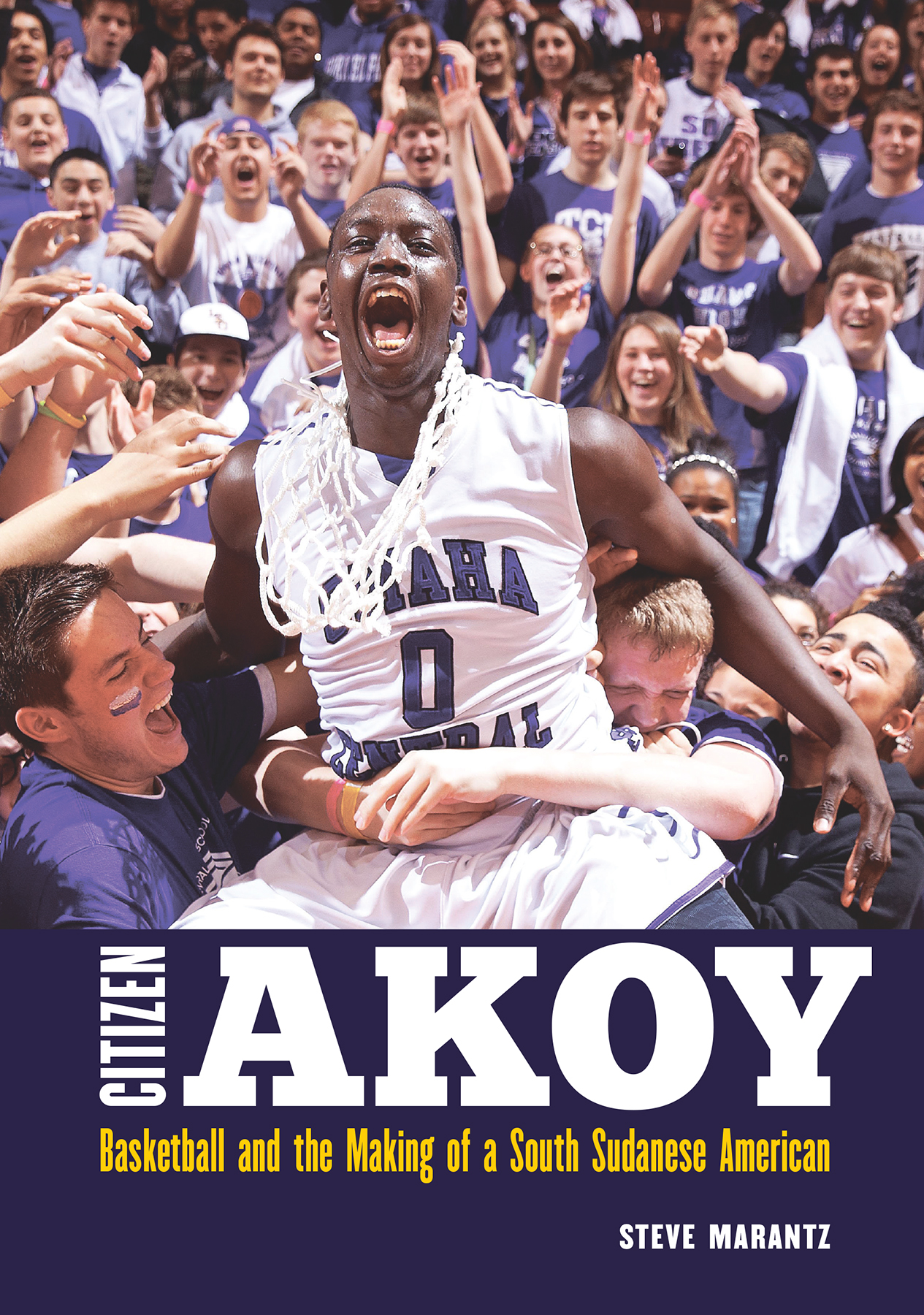
Im convinced that the greatest basketball player in the next one hundred years will be a Dinka tribesman originally from southern Sudan. Size and grace will win the day. Akoy Agau will be mentioned as one of the building blocks in this history. Here is his amazing story. Magic abounds.
Leigh Montville, author of Manute: The Center of Two Worlds and Sting Like a Bee
Akoys amazing journey from refugee to basketball star isnt just about sports. Its a story of growing up, transcending race, and pursuing dreams, and Marantz tells it well.
Henry Cordes, staff writer for the Omaha World-Herald and author of Unbeatable and Devaney
The antidote to anti-immigrant rhetoric, Citizen Akoy tells the vivid story of the refugee as the hero of our time, one Akoy Agau, a teenage basketball star who becomes an ambassador for sports-crazy white Nebraska. Thrillinga must-read for anyone excited by what it takes to be an American today.
Terese Svoboda, author of Anything That Burns You: A Portrait of Lola Ridge, Radical Poet
Citizen Akoy
Basketball and the Making of a South Sudanese American
Steve Marantz
University of Nebraska Press | Lincoln and London
2019 by the Board of Regents of the University of Nebraska
Cover designed by University of Nebraska Press; cover image Rebecca Gratz / Omaha World Herald.
Author photo by Hank Shrier
All rights reserved.
Library of Congress Cataloging-in-Publication Data
Names: Marantz, Steve.
Title: Citizen Akoy: basketball and the making of a South Sudanese American / Steve Marantz.
Description: Lincoln: University of Nebraska Press, 2019. | Includes bibliographical references and index.
Identifiers: LCCN 2018016699
ISBN 9781496203229 (hardback)
ISBN 9781496212580 (epub)
ISBN 9781496212597 (mobi)
ISBN 9781496212603 (pdf)
Subjects: LCSH : Agau, Akoy, 1994 | Basketball playersUnited StatesBiography. | Omaha Central High School (Omaha, Neb.)BasketballHistory. | Sudanese AmericansBiography. | RefugeesSouth SudanBiography. | BISAC : SPORTS & RECREATION / Basketball. | SOCIAL SCIENCE / Ethnic Studies / African American Studies. | SOCIAL SCIENCE / Emigration & Immigration.
Classification: LCC GV 885 . M 288 2019 | DDC 796.323092 [B]dc23 LC record available at https://lccn.loc.gov/2018016699
The publisher does not have any control over and does not assume any responsibility for author or third-party websites or their content.
To Alison, my muse and light
No one wants to become a refugee. No one should have to endure this humiliating and arduous ordeal. Yet, millions do. Even one refugee forced to flee, one refugee forced to return to danger is one too many.
Ban Ki-moon, UN Secretary-General
Contents
This story owes, first of all, to Akoy Agau, who was the primary source of information and whose cooperation was beyond generous. Just as instrumental was Akoys mother, Adaw Makier, who reconstructed her refugee journey with pride and sadness. Akoys father, Madut Agau, and Akoys siblings were politely supportive of the process. I am thankful for their help and deeply respectful of their struggles and accomplishments.
My thanks to Akoys confidantes: Scott, Leisha, and Trae Hammer; Dave, Ann, and Charlotte Lotte Sjulin; and Tarir Ty Gatuoch. Thanks also to Akoys former Omaha Central High coaches and teammates: Jay Ball, Eric Behrens, Paulino Gomez, Tra-Deon Hollins, Jay Landstrom, Dominique McKinzie, K. J. Scott, TreShawn Thurman, and Edward Vinson. Former Central coaches Rick Behrens, Chad Burns, and Herb Welling contributed, as did opposing coaches Bruce Chubick and Tim Cannon. Jay Landstroms video highlight reels were an archival source.
More thanks to current and former Central High administrators and teachers Bette Ball, Edward Bennett, Keith Bigsby, Linda Ganzel, Gaylord Doc Moller, Rod Mullen, Paul Nielson, Denise Powers, Tim Shipman, Jen Stastny, and Michelle Synowiecki, as well as former Central students Emily Beck, Jacob Bigelow, Changkuoth Gatkuoth (formerly Lol Kuek), Henry Hawbaker, and Jen Rooney.
Central High Foundation executive director Michele Roberts offered her memories and resources, with the able assistance of communications manager Josh Bucy. Alumni historian Jim Wigton provided archival material on the struggle to save Central in the 1970s.
South Sudanese and African perspectives came from Omaha Talons founder Koang Doluony, Bernadita and Nancy Peter, Gutluak Kang of the Refugee Empowerment Center, and attorney Amadu Swaray. Institutional viewpoints came from Susan Mayberger of Omaha Public Schools and Ryan Overfield and Lacey Studnicka of Lutheran Family Services of Nebraska. Mabel Boyd and Raydelle Meehan offered a history of the Mason School. Central alum AJamal Byndon offered an African American perspective.
Interviewees from media included Mike Sautter, who founded the website Nebraska High School Hoops, and Thor Tripp of KETV 7. Ryan Spring and Joe Mantegna at Blair Academy and Stu Vetter at Montrose Christian Academy were interviewed. Doug Goltz at Falls City Sacred Heart provided hoops history at his school.
Media sources included the Albany Times-Union, Alternet.org, Anderson Independent-Mail, Breitbart News, espn.com, Grand Island Independent, Huffington Post, Idaho Statesman, Lincoln Journal Star, Louisville Courier Journal, MaxPreps.com, New Sudan Vision, New York Times, Omaha World-Herald, Rivals.com, and Washington Post. Additional sources were the Central High Register and Central High O-Books from the late 1990s through 2013 and Leo Adam Bigas blog, My Inside Stories.
Books included The Dinka of Sudan, by Francis Mading Deng (Long Grove IL : Waveland Press, 1984); The Middle of Everywhere, by Mary Pipher (Orlando: Harcourt, 2002); I Am a Man, by Joe Starita (New York: St. Martins Press, 2008); What Is the What, by Dave Eggers (New York: Vintage Books, 2007); Play Their Hearts Out, by George Dohrmann (New York: Ballantine Books, 2012); Manute, by Leigh Montville (New York: Simon and Schuster, 1993); LeBron James: The Rise of a Star, by David Lee Morgan Jr. (Cleveland: Gray and Company, 2003); Brando: Songs My Mother Taught Me, by Robert Lindsey (New York: Random House, 1994); Brandos Smile, by Susan Mizruchi (New York: Norton, 2014); Bridge of Words: Esperanto and the Dream of a Universal Language, by Esther Schor (New York: Metropolitan Books, 2016); Notes from My Travels, by Angelina Jolie (New York: Pocket Books, 2003); Running for My Life, by Lopez Lomong (Nashville: Thomas Nelson, 2012); Of Beetles and Angels, by Mawi Asgedom (New York: Little, Brown, 2001); and Breaking Cardinal Rules, by Katina Powell (Indianapolis: IBJ Book Publishing, 2015).
Karina Longworths podcast You Must Remember This educated me on the Hollywood blacklist. Refugee data, reports, and analyses came from the office of the UN High Commissioner for Refugees; the Congressional Research Service; the Office of Refugee Resettlement; the Departments of State, Homeland Security, and Health and Human Services, and the Migration Policy Institute. Bronwen Manby provided a study on nationality rights in Sudan and South Sudan and a follow-up assessment.
Special thanks to Central High history teacher Scott Wilson for connecting pertinent faculty to me, critiquing my first draft, and inspiring students lucky enough to get a seat in his classroom.
Next page
